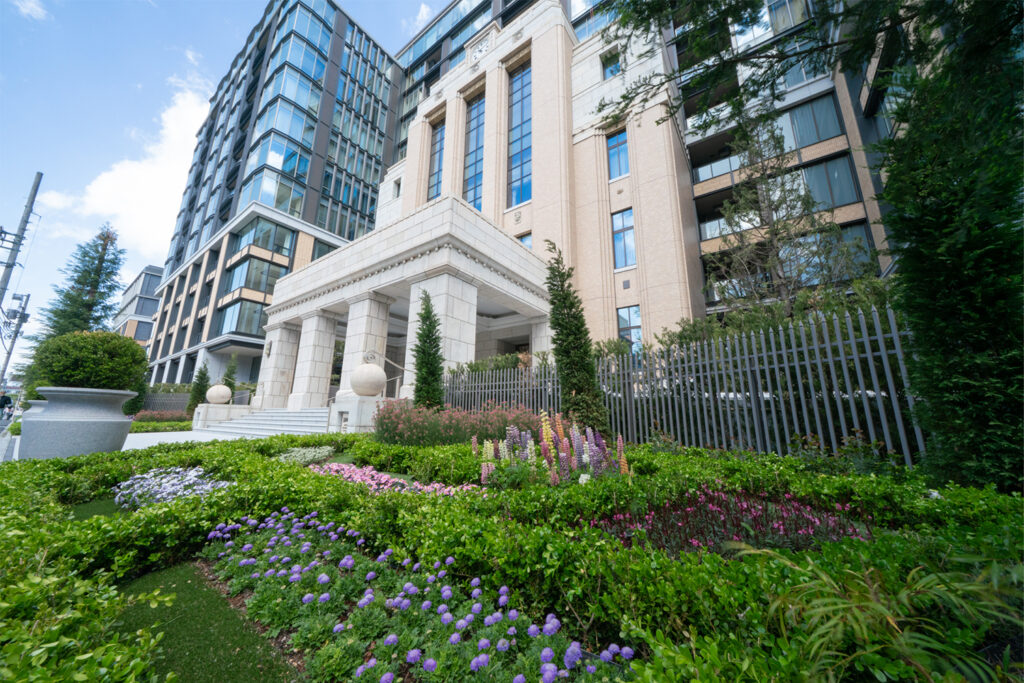In many respects purchasing a property in Japan as a foreigner can be easier than in other countries. For example, real estate lawyers are usually not involved in most transactions, and there are no restrictions on foreign ownership, or additional taxes levied on foreigners.
If you are able to navigate the language and cultural differences, then you’ll find there are many opportunities for purchasing property, whether as a primary residence, as a home-away-from-home when visiting Japan, or for investment purposes.
Basics of a Japanese real estate deal

As Japanese real estate agents take charge of both the brokerage aspect of the trade as well as the legal one, real estate lawyers are usually not involved at any point. There will normally be two agents, one on the buyer’s side and one on the seller’s side, and they will both work together to best represent their side and taking full legal responsibility. Being able to rely on one agent for the entire duration of the trade greatly streamlines the process.
One more thing that makes Japanese real estate easier to buy is that there are no legal restrictions or extra taxes placed on foreigners. For example, in Canada, where I’m from, the province of British Colombia in 2018 put a 20% tax on residential property purchases made by all foreign nationals in Vancouver. The government even raised it by 5% as it was 15% in 2016. In the USA, foreigners are usually subjected to a 15% tax unless they meet some conditions. In Australia and New Zealand, foreigners may not even be allowed to purchase properties. However, in the case of Japan, it is possible for someone residing outside the country or not holding a visa to, still be able to purchase a property.
For this reason, with other countries becoming stricter and Japan having fewer regulations, Japanese real estate has become more and more popular. This article introducing 6 things to be mindful of will hopefully give you some advice should you be contemplating making a purchase in Japan.
Get pre-approved for mortgage
Should you require a mortgage, getting pre-approval is a crucial first step. Many prospective buyers mistakenly assume that since there are few restrictions on foreigners for property purchase, the same must be true for obtaining financing. Japanese financial institutions are notoriously risk-averse. Unless one is a resident in the country, Japanese banks will usually not be willing to finance no matter how high or stable the income of the applicant. The good news is that a few overseas banks such as UOB (United Overseas Bank based in Singapore) or BOC (Bank of China) are willing to lend to foreigners for property purchases in Japan.
Be mindful of the acquisition costs
Excluding properties that will necessitate repairs or renovations, purchasing a Japanese property usually requires 4 to 5% of the property price in acquisition costs. These costs will include the brokerage fees which are usually about 3%, the judicial scrivener fees, acquisition, city and asset taxes, and disaster insurance. It’s important to note that in the vast majority of cases the acquisition costs cannot be included as part of the property price when applying for financing. Although the brokerage fees in Japan can be seen as expensive compared to some other Asian countries which only have brokerage fees of 1% or 2%, they are quite manageable when one considers that they include what would be paid for a real estate lawyer. One should also take into account that there is no special tax for foreigners such as in Singapore, the USA, and other countries.Be mindful of the year of construction
In 1981 Japan introduced a new and stricter earthquake-proofing standard to ensure that newly built properties could withstand tremors up to 7 on the Japanese seismic scale. As such, properties designed before June of 1981 tend to gap down in price, being much cheaper. Naturally, it doesn’t mean that houses built prior to that date will be destroyed at the next big earthquake, as Japan has experienced many since then and those houses were fine, but it’s important to understand why there is a price difference to appropriately compare properties.
Don’t underestimate the down payment
As Japanese nationals can often get up to 90% financing, many people assume it must be the same for foreigners. It can be, provided that they meet the stringent criteria of the Japanese banks. But in the case of relying on an overseas bank, however, the financing is usually 60 to 70%, meaning that 30 to 40% of the property’s price should be set aside for the down payment. This is the direct result of the inherent risk the financial institution would be taking in lending to someone who wouldn’t have strong roots in the country. One important note is that the above figures do not apply in the case of having private bank connections, as they would be much more comfortable at lending with better terms to their existing clients.Do not rely on price negotiation
Japan is not a country where price negotiations are common, and that aspect of the culture also applies to real estate transactions. Besides the cultural differences between Japan and other countries, one of the reasons for this is that both sides will be represented by an agent, which means the price will usually match the current market value. Since it’s rare to see grossly overpriced properties, it will be difficult to have a strong case for negotiations. As a general rule of thumb, one shouldn’t expect to get more than 10% off at the most in the event that the seller is an individual. When buying directly from a real estate company, especially if the property is new, the price is often fixed.Work with a reliable real estate agent
Working with a reliable real estate agent who has experience with foreign clients is important not only financially – in order to get the most appropriate deal – but also emotionally, as their experience and attitude will have an enormous impact on how smoothly the transaction will proceed and help avoid problems in the long run. Potential problems could include the incorrect amount of tax being paid, or purchase declaration documents not being correctly completed. Even a straightforward sale can veer off course if potential problems are not spotted and solved in advance.
Key Takeaways
The Japanese real estate market is one of the biggest in the world and to real estate investors it can offer excellent and stable returns thanks to its relatively low prices, high occupancy rates and openness to foreigners. For individuals based overseas, a home in Japan can serve as an anchor, enable a deeper level of connection to the country and a reason to visit more often.
The Japanese market can, however, be opaque and difficult to enter due to the difference in culture and the language barrier but by following the advice in this guide and working with the right agent those obstacles can be easily surmounted and the advantages fully enjoyed.











